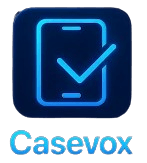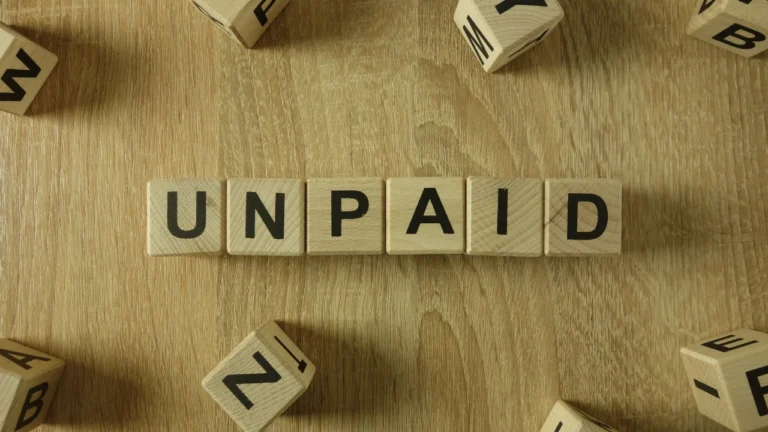
Collection Information Bureau Repeated Phone Calls Harassment?
Is Collection Information Bureau harassing you with constant phone calls? Do they threaten to take legal action or garnish your wages? Are they calling you at all hours or several times a day? Are they telling your family and neighbors that you owe a debt? If so what they are doing is illegal and needs to stop. You have the legal right to stop their phone harassment. If a collection agency violates the FDCPA, you may be eligible to receive up to $1000.00 in statutory damages, along with covering your attorney fees.
The Federal Trade Commission (FTC) is the primary federal agency responsible for enforcing debt collection laws and protecting consumers from abusive debt collection practices and unfair practices. The FTC, along with the (CFPB), oversees debt collection practices to ensure compliance with federal and state law. State laws may provide additional protections beyond federal regulations. Debt collectors, including third party debt collectors and any debt collection agency, must follow strict rules when collecting legitimate debt, such as medical debt, mortgage debt, and multiple debts. They are prohibited from making misleading representations about the debt owed, legal actions, or the legal process, and cannot use criminal means or threaten criminal prosecution to collect debts. Debt collectors may only contact third parties to acquire location information, such as your address or telephone number, and cannot disclose that the consumer owes a debt. If a debt collector called your workplace or you receive personal calls at work, you have the right to request that these calls stop. Repeated calls, telephone calls at inconvenient times, and telephone conversation repeatedly with the intent to harass are prohibited, and prior consent is required for certain communications. Debt collectors must provide a written notice within five days of initial contact, outlining the debt owed, the original creditor, and your right to dispute the debt. Payments made should be properly applied to such debt, especially when multiple debts are involved. If a creditor or collection agency obtains a court judgment, they may pursue legal actions such as wage garnishment or levying a bank account to recover the debt owed. Consumers should use certified mail when sending important correspondence to a debt collection agency or collection agency’s representatives. The natural consequence of abusive or unfair practices is harm to the physical person and financial well-being of the consumer.
The Fair Debt Collection Practices Act, also known as the FDCPA, protects consumers’ rights in the context of debt collection. In other words, debt collectors must adhere to a certain set of rules when they are pursuing consumers who owe money. If a collector violates the FDCPA, you can sue the collector in court. The law allows consumers who have been victims of harassment from debt collectors to get the calls to stop in addition to recover statutory damages of up to $1,000, plus attorney fees and court costs.
Is Collection Information Bureau a scam?
According to the Better Business Bureau website, They have been in business since 1948. There have been 49 complaints closed in the last 3 years and 21 complaints closed out in the last 12 months.
Collection Information Bureau Better Business Bureau
What is Collection Information Bureau Debt Collection Agency?
Collection Information Bureau is a debt collection agency. Services include First and Second Placement Debt Collection, Early Out Collection Programs, Extended Business Office Services, Payment Plan Monitoring Programs, Insurance Rebilling and Appeals, Probate Claim Filing and Processing, Clean Up Projects, Accounts Receivable Management Consulting etc.
As a third party debt collector, Collection Information Bureau must comply with all applicable federal and state regulations, including the Fair Debt Collection Practices Act (FDCPA). The collection agency’s reputation depends on its adherence to legal obligations and ethical standards in its interactions with consumers.
Address: 202 N. Federal Hwy. Lake Worth, FL 33460-3438 Phone: (800) 841-3314 Fax: (561) 588-0933 (561) 588-6644
Alternate Business NameCIB Collection Service Bureau Doctors Business Bureau

Debt Collection Practices Act: Your Legal Protections
The Fair Debt Collection Practices Act (FDCPA), also known as the Debt Collection Practices Act, is a crucial federal law designed to protect consumers from unfair debt collection practices. This law sets strict guidelines for how debt collectors and collection agencies must conduct themselves when attempting to collect debts. If you are contacted by a third-party debt collector, the FDCPA ensures that you are treated with respect and fairness throughout the debt collection process.
Under the FDCPA, debt collectors are prohibited from engaging in abusive, deceptive, or harassing behavior. This includes making repeated phone calls intended to annoy or intimidate, using obscene or profane language, or making false statements about the legal status of your debt. The law also requires debt collectors to provide meaningful disclosure of their identity and to honor consumer requests to stop certain types of communication, such as personal calls to your workplace or home.
Importantly, the FDCPA gives you the right to request written verification of any debt a collection agency claims you owe. If you believe you are being targeted by unfair debt collection practices, you can demand that the debt collector stop calling you by sending a cease and desist letter. The law also protects your privacy by restricting debt collectors from discussing your debt with anyone other than you, your spouse, or your attorney.
If a debt collector violates the FDCPA, you have the right to take legal action against them. This federal law empowers consumers to seek statutory damages and recover attorney fees if they are subjected to debt collection harassment. Understanding your rights under the Debt Collection Practices Act is the first step in protecting yourself from aggressive debt collectors and ensuring that all collection efforts remain within the boundaries of the law.
Collection Information Bureau Debt Collector Harassment Examples
If they engage in any of the following tactics, you may have a case:
- ➤ Using profanity or abusive language
- ➤ Calling you before 8:00 a.m. or after 9:00 p.m.
- ➤ Making repeated calls or causing continuous telephone calls with the intent to harass or annoy you
- ➤ Engaging in a telephone conversation repeatedly with the intent to annoy, abuse, or harass you
- ➤ Talking to others about your debt without your prior consent
- ➤ Calling your workplace without your prior consent, or causing you to receive personal calls at work from a debt collector
- ➤ Threatening to sue you, harm you, or destroy your credit
- ➤ Telling you or anyone else that you’ve committed a crime
- ➤ Calling repeatedly for the wrong person
- ➤ Failing to notify you of your right to dispute the debt by not providing a written notice within five days of initial contact
- ➤ Trying to collect more than legally allowed
Known Collection Information Bureau Collection Call Numbers
Are you receiving any harassing phone calls from any of the following numbers?
(800) 841-3314, (561) 588-4598, (800) 231-3514, (561) 588-0300, (800) 841-3065
If the answer is yes, then you are receiving calls from a known Collection Information Bureau number. You may be a victim of Collection Information Bureau phone harassment. The list above is not all the numbers that Collection Information Bureau uses. The calls can be from a different number and it still be Collection Information Bureau calling you. Contact our office right away so we can start the process to stop them from calling you illegally. Above all, no one should live with harassment!
To protect yourself, always respond to collection agencies in writing using certified mail to document your communications.
Common Questions:
Is their a scam? No, They have been in business since 1948.
Can they seize my property? Generally, they can’t seize your property, but there are some exceptions. If the debt owed is tied to the property, such as mortgage debt or medical debt, the collector may be able to repossess it. If the creditor intends to pursue legal actions and obtains a court judgment through the legal process, the debt collector may be able to take certain property, levy a bank account, or garnish wages as permitted by the court. State law and federal law will determine what property can be seized.
Can they sue me? Yes, they can sue you so long as the debt is within the statute of limitations. Legal actions such as lawsuits, wage garnishment, or levying a bank account can only occur after proper legal process and a court judgment. If you have multiple debts, payments should be properly applied to such debt as required by law. State laws may provide additional protections beyond federal law regarding debt collection practices.
Can they report my debt to the collections bureaus? Yes, debt collectors are allowed to place the collection account on your credit report, but only legitimate debt can be reported to a consumer reporting agency. The original creditor must be identified in the reporting process. Medical bills and mortgage debt are common types of debt owed that may be subject to collection.
Can they arrest me? Debt collectors don’t have the authority to have you arrested for a debt. Threatening criminal prosecution for failure to pay debts is considered an unfair practice and may constitute abusive practices or misleading representations, which are prohibited by law. However, if you violate a court order, e.g. an order to appear in court, the judge can issue a warrant for your arrest. Depending on the laws in your state, you may be arrested for certain debts like unpaid child support or traffic tickets.
Consumers should be wary of misleading representations or threats of legal actions that are not permitted by law.
The following is a sample list of complaints filed against Collection Information Bureau and can be found on Pacer.org.
9:19-cv-80579-DMM COLON CASTRO v. COLLECTION INFORMATION BUREAU, INC.
9:18-cv-81235-RLR Edson v. Collection Information Bureau, Inc.
1:17-cv-20665-CMA Kessler v. Collection Information Bureau, Inc. et al
0:16-cv-62514-BB Gonzalez v. Collection Information Bureau, Inc.
1:16-cv-02486-ELR Chenoweth v. Collection Information Bureau, Inc.

CONSUMER RIGHTS LAW FIRM, PLLC
At Consumer Rights Law Firm PLLC, is a law firm that specializes in helping clients who are facing harassment from debt collectors in any form, including telephone communication. Rather than suffer alone, contact our office to begin the process to stop them harassment. Our office has been assisting consumers since 2010. We have an A+ rating with the Better Business Bureau.
If you are interested in learning more about how to safeguard yourself and prevent even more harassment from them, 📞call us at (877) 700-5790 for immediate assistance or visit our website at www.consumerlawfirmcenter.com
Success Stories
- Consumer Rights Law Firm is amazing! Derek was A+ all the way getting a Debtor to stop harassing me & even had them pay the court costs & fees! I am flabbergasted- had to pinch myself even!!! Thank you SO much Derek! Would most definitely recommend this firm to anyone who is going through the same thing. Give them a call!⭐⭐⭐⭐⭐
- Amazing! My experience was very quick and easy and I got a nice settlement in no time. Also, their word was kept as far as not paying any fees. Zero out of pocket, and great settlement in return. 5 stars!⭐⭐⭐⭐⭐
- Being completely honest I was extremely hesitant and worried about this being a joke. I am extremely grateful that I took a chance with Matt and he took care of me, even answering my calls/texts at any time of the day. He was able to get the harassment to stop from the debt collector within a week (nonstop robo calls) and roughly a month after signing him as my attorney he called me stating me debt of over 4k was waived. No attorney fees, no debt and no more spam calls. Thank you so much, massive weight has been lifted off my shoulder. These guys are the real deal⭐⭐⭐⭐⭐
Frequently Asked Questions
1. Who is Collection Information Bureau?
Collection Information Bureau is a third-party debt collection agency that contacts consumers about overdue accounts.
2. Why is Collection Information Bureau contacting me?
They may be attempting to collect a debt they believe you owe or trying to verify your information.
3. Can Collection Information Bureau call me repeatedly?
No. Harassing or excessive calls are prohibited under the FDCPA.
4. Can Collection Information Bureau contact my employer?
They may confirm employment but cannot discuss your debt without your permission.
5. Can I request proof of the debt from Collection Information Bureau?
Yes. You have the right to request written debt validation within 30 days.
6. What if the debt they’re collecting is not mine?
You can dispute the debt in writing and request verification.
7. Is Collection Information Bureau allowed to threaten legal action?
They cannot make false threats or claim legal action they do not intend to take.
8. Can Collection Information Bureau report to credit bureaus?
Yes, but only if the debt is valid and follows legal reporting guidelines.
9. How should I respond if I feel they are violating my rights?
Document all communication and consider filing a complaint or seeking legal help.
10. What happens if Collection Information Bureau violates debt collection laws?
They may face legal penalties, and you may be entitled to damages.







